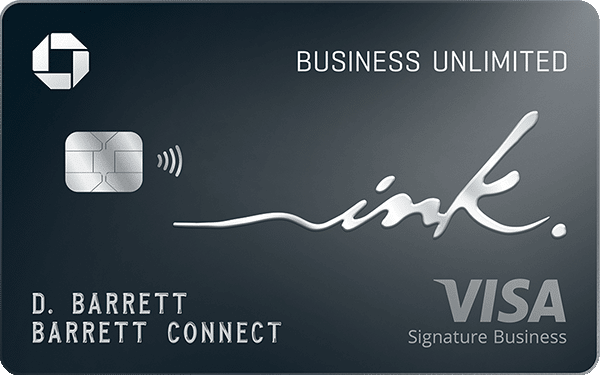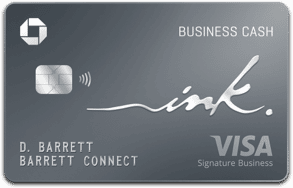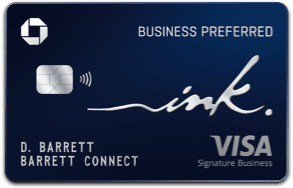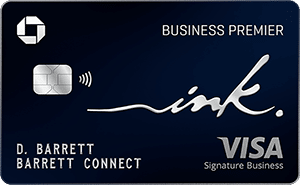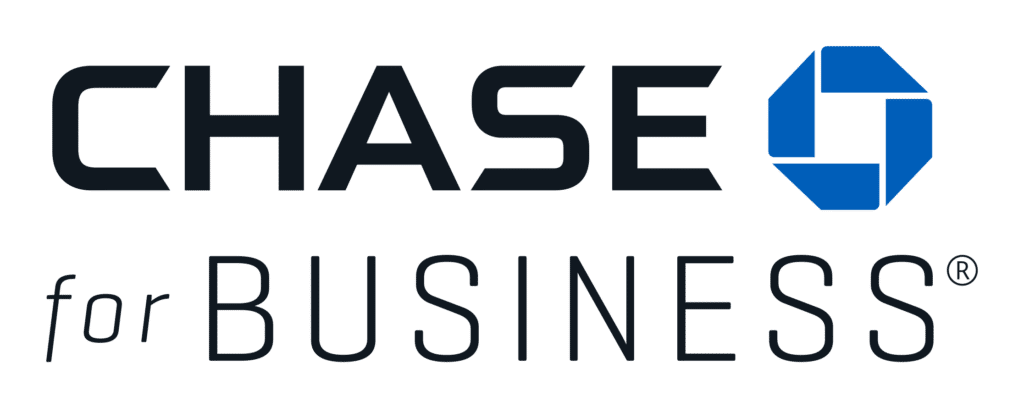Most products on this page are from partners who may compensate us. This may influence which products we write about and where and how they appear on the page. However, opinions expressed here are the author's alone, not those of any bank, credit card issuer, airline or hotel chain.
Starting a business is a popular goal for many people, including those who are looking for a career change, people who want to start a small part-time hustle from home and folks with an entrepreneurial spirit. If becoming a business owner is part of your dream, it's wise to do everything possible to set yourself up for success. And part of preparing to succeed should involve learning from the mistakes of others.
Below you will discover five common mistakes small business owners make. When you take the time to learn about these potential pitfalls in advance, you'll hopefully be better prepared to avoid them in your business journey.
1. Not Having a Plan
Before you start a new business, it's important to have a business plan. If you skipped this step when you first launched, consider creating a plan now to take your company forward.
Even a basic business plan can help you map out key details such as the costs you'll likely encounter, the products or services you plan to sell and who your target customers will be. According to the Harvard Business Review, entrepreneurs who draft a formal business plan are 16% more likely to achieve viability than those who skip this important step.
Quick Tip
Want to write a business plan of your own but don’t know where to start? The U.S. Small Business Administration provides a free template you can use as a guide.
2. Getting Stuck in the Planning Phase
Creating a business plan is wise, but it's a mistake to think you need to have every little detail figured out before you can get your business up and running. Overthinking can stifle productivity and hold back any company.
Here are some tips that may help you avoid analysis paralysis:
- Schedule deadlines for making business decisions.
- Break down big decisions into smaller, actionable steps.
- If you have to pick between multiple options, narrow the choices down early.
- Seek input from others you trust and respect.
- Accept that "perfect" answers often don't exist and seek the best solutions for your situation.
 Related Article
Related Article
How to Earn $400 With Chase Business Complete Checking
3. Not Setting Up a Legitimate Business
When you establish a new business, you need to complete certain legal steps, which could include:
- Confirming your business name isn't already in use by a registered company.
- Registering your business with the Secretary of State (or other appropriate state offices).
- Selecting a business entity (e.g., LLC, corporation or partnership).
- Requesting an Employer Identification Number (EIN) from the IRS, as well as a tax ID (if your state requires this).
- Applying for all required licenses and permits you'll need to do business (which varies by industry and state).
Business owners that fail to set up their companies properly could face serious problems. Without a registered business, for example, you might be personally liable if someone files a lawsuit against your company. And if you don't request an EIN from the IRS (and subsequently fail to pay your federal business taxes), the consequences could be far more severe.
Compare Chase Ink Business Credit Cards
| Credit Card | Intro Bonus | Annual Fee | Rewards Rate | Learn More |
|---|---|---|---|---|
|
|
$750Cash Bonus
Earn $750 bonus cash back after you spend $6,000 on purchases in the first 3 months from account opening. |
$0 |
1.5%Cashback
Earn unlimited 1.5% cash back on every purchase made for your business. The advertised rewards type is cash back, but it’s important to note that you’re technically earning Chase Ultimate Rewards points (which can then be converted to cash back). |
Apply Now Rates and Fees |
|
|
$750Cash Bonus
Earn $350 when you spend $3,000 on purchases in the first three months and an additional $400 when you spend $6,000 on purchases in the first six months after account opening |
$0 |
1% - 5%Cashback
Earn 5% cash back on your first $25,000 spent in combined purchases at office supply stores and on internet, cable and phone services each account anniversary year. It also offers you 2% cash back on your first $25,000 spent in combined purchases at gas stations and restaurants each account anniversary year. |
Apply Now Rates and Fees |
|
|
90,000Chase Ultimate Rewards Points
Earn 90,000 bonus points after you spend $8,000 on purchases in the first 3 months from account opening. Dollar Equivalent: $2,070 (90,000 Chase Ultimate Rewards Points * 0.023 base) |
$95
This fee includes extra cards for authorized users, such as employees, at no additional charge. |
1x - 3xPoints
Earn 3x points on the first $150,000 of combined spending in a number of key business categories |
Apply Now Rates and Fees |
|
|
$1,000Cash Bonus
Earn $1,000 bonus cash back after you spend $10,000 on purchases in the first 3 months from account opening. |
$195 |
Up to 2.5%Cashback
Earn unlimited 2.5% total cash back on purchases of $5,000 or more and unlimited 2% cash back on all other business purchases. |
Apply Now Rates and Fees |
 Related Article
Related Article
5 Best Business Bank Account Bonuses and Promotions (2025)
4. Not Separating Business and Personal Finances
As a small business owner, the line between your business and personal life may often be blurred. According to the U.S. Small Business Administration, almost half of small business owners use personal credit cards for business expenses. However, you must maintain a clear distinction between your business and personal finances. Fail to do so and you could face a variety of potential problems. For example, when you intermingle business and personal finances you might forgo personal liability protections if someone tries to sue your business in the future.
One of the best ways to keep your business and personal finances separate is to open separate accounts in your company's name. Such accounts might include a:
- Business Checking Account
- Business Savings Account
- Business Credit Card
Featured Business Banking Products
Chase Business Complete Checking®
- Our Rating 5/5 How our ratings work
- APYN/A
- Minimum
Deposit RequiredN/A -
Intro Bonus
$300-$500Expires July 17, 2025
Earn up to $500 when you open a new Chase Business Complete Checking® account. For new Chase business checking customers with qualifying activities.
The Chase Business Complete Checking® account is an attractive option. It offers the convenience of one of the largest financial institutions in the country, and it frequently offers bonuses that are relatively easy to earn. While it does not allow you to accrue interest on your funds like some other popular small business checking accounts, it's still very much worth considering if you can meet the requirements to waive its monthly fees.
Overview
The Chase Business Complete Checking® account comes loaded with a valuable sign-up bonus and an assortment of helpful perks, so long as you can meet the requirements to waive its monthly fees. It’s a good fit for many business checking customers, regardless of business size.
Pros
- Generous signup bonus
- Several options to waive monthly fee
- Same-day deposits using QuickAccept℠ service
- Huge network of in-person branches and ATMs
Cons
- Monthly maintenance fee
- Overdraft fees are relatively high
- Limit on fee-free cash deposits and physical transactions
Business credit cards might also be an effective way to help establish business credit for your new company (depending on the card issuer's credit reporting policy). Building good business credit could make it easier to qualify for business financing in the future such as business loans, lines of credit and commercial real estate loans.
5. Trying to Do Everything Yourself
There's no question that you have to wear many hats when you start a business. But no matter how talented you may be, no one can manage everything on their own when it comes to running a company.
Along the way, you may need to hire staff, work with contractors or outsource key tasks to professionals. Asking others for help typically does come at a cost in the form of salaries, wages or professional fees. Yet hiring help can also free you up to focus on doing what you do best—hopefully allowing you to generate more revenue and making those expenses worth the investment in the long run.
Next Steps
As you work toward your business goals, it's wise to study the failures and successes of entrepreneurs who have come before you. Avoiding the five mistakes above can be a great place to begin. Once you finish learning about these common business blunders (and how not to repeat them in your professional journey), our guide on how to start a business can help you take your research a step further.
 Related Article
Related Article







